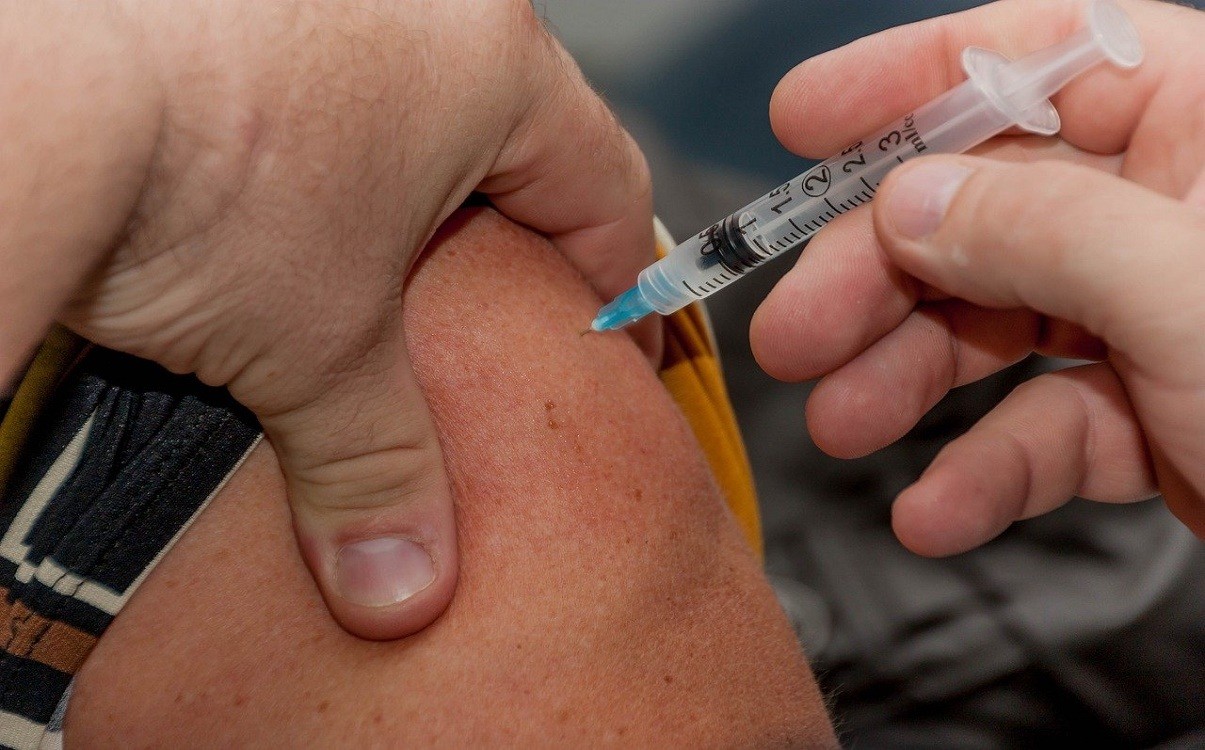2.2 Million Doses Of COVID-19 Vaccines Have Been Administered Across Canada
- TDS News
- Breaking News
- March 6, 2021

Statement from the Chief Public Health Officer of Canada on March 6, 2021
TDS News – As of March 5th, over 2.2 million doses of COVID-19 vaccines have been administered across Canada. Federal, provincial and territorial authorities are working closely together to monitor vaccine safety following immunization with COVID-19 vaccines.
To date, no unexpected vaccine safety issues have been identified. All adverse events are subject to review. All serious events undergo a detailed investigation to determine whether or not they are related to the use of the vaccine. Information that indicates a potential link between the use of a vaccine and a previously unknown health event, or a health event with incomplete information, is considered a safety signal, which warrants appropriate action from the regulator.
Based on data up to February 26th, there have been 1,591 reports of adverse events following immunization (AEFI) with COVID-19 vaccines; these include any medical event that occurs following immunization, but is not necessarily related to the vaccine or the immunization process. A total of 194 AEFI reports to date – about 1 in 9,200 doses administered – were considered serious, such as a severe allergic reaction.

As COVID-19 activity continues in Canada, we are tracking a range of epidemiological indicators to monitor where the disease is most active, where it is spreading and how it is impacting the health of Canadians and public health, laboratory and healthcare capacity. At the same time, the Public Health Agency of Canada is providing Canadians with regular updates on COVID-19 vaccines administered, vaccination coverage and ongoing monitoring of vaccine safety across the country. The following is the latest summary on national numbers and trends, and the actions we all need to be taking to reduce infection rates, while vaccination programs expand for the protection of all Canadians.
Since the start of the pandemic, there have been 881,761 cases of COVID-19, including 22,192 deaths reported in Canada; these cumulative numbers tell us about the overall burden of COVID-19 illness to date. They also tell us, together with results of serological studies, that the vast majority of Canadians remain susceptible to COVID-19.
As vaccination programs continue to expand across Canada, there is growing optimism that widespread and lasting immunity can be achieved through COVID-19 vaccination. Recent expert analysis of the efficacy and effectiveness of COVID-19 vaccines in Canada supports that priority vaccination programs are providing strong benefits for those at highest risk of severe outcomes or exposure. These encouraging findings have created opportunities for the safe and effective adjustment of vaccination programs to protect the entire adult population within a short timeframe, while contributing to health equity.
Currently, there are 30,146 active cases across the country. Although COVID-19 activity had been declining nationally from mid-January through mid-February, daily case counts have since levelled off. The latest national-level data show a 7-day average of 2,866 new cases daily (Feb 26-Mar 4).
Nationally, severe outcomes continue to decline; however, where infection rates have levelled off or increased, some increases are being seen. Provincial and territorial data indicate that an average of 2,125 people with COVID-19 were being treated in Canadian hospitals each day during the most recent 7-day period (Feb 26-Mar 4), including 559 of whom were being treated in intensive care units. During the same period, there were an average of 41 COVID-19-related deaths reported daily.

The emergence and spread of certain SARS-CoV-2 virus variants is a continuing concern. For the week of February 21-27, there were on average of 103,189 tests completed daily across Canada, of which 3.0% were positive for COVID-19. Over the past month, genomic sequencing capacity has rapidly increased across Canada, with 10,568 high quality SARS-CoV-2 genomes from 11% of cases sequenced during that time period. As of March 4th, a total of 1,649 variants of concern have been reported across Canada, including 1,532 B.1.1.7 variants, 114 B.1.351 variants and 3 P.1 variants.
Until vaccine access fully expands and sufficient levels of population immunity are achieved, and with the continued increase of cases and outbreaks associated with more contagious variants, we must all remain vigilant with public health measures and individual precautions to prevent a rapid shift in trajectory of the epidemic.
Over the coming weeks and months, it will be important to maintain a high degree of caution. Any easing of public health measures must be done slowly with enhanced testing, screening, and genomic analysis to detect variants of concern. In particular, there must be sufficient contact tracing capacity and supports for effective isolation, given increased transmissibility of variants of concern.
Canadians are urged to remain vigilant, continue following local public health advice, and consistently maintain individual practices that keep us and our families safer: stay home/self-isolate if you have any symptoms, think about the risks and reduce non-essential activities and outings to a minimum, avoid all non-essential travel, and maintain individual protective practices of physical distancing, hand, cough and surface hygiene and wearing a well-fitted and properly worn face mask as appropriate (including in shared spaces, indoors or outdoors, with people from outside of your immediate household).
Aiming to have the fewest interactions with the fewest number of people, for the shortest time, at the greatest distance possible is a simple rule that we can all apply to help limit the spread of COVID-19, while vaccine programs expand to protect all Canadians.








